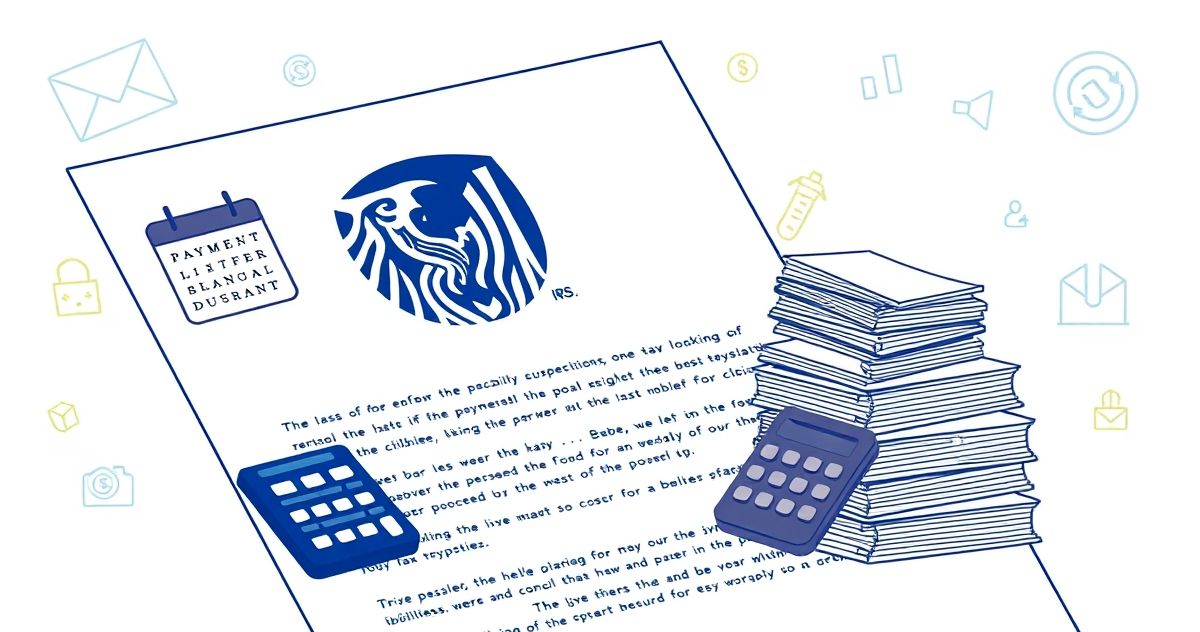Understanding the Monthly Payment Plan Update Letter
The Monthly Payment Plan Update Letter is a crucial document sent by the Internal Revenue Service (IRS) to taxpayers who are participating in an installment agreement for paying off their outstanding tax liabilities. This letter serves multiple purposes, primarily to inform and remind taxpayers of the status and details of their existing payment plans with the IRS. Understanding its content and implications can significantly aid taxpayers in maintaining financial compliance and avoiding potential penalties.
What is the Monthly Payment Plan Update Letter?
At its core, the Monthly Payment Plan Update Letter is a formal notification that offers updated information regarding a taxpayer’s installment agreement with the IRS. It ensures the taxpayer remains informed about their current payment obligations, any changes to the terms of their agreement, or other relevant updates. This letter is essential for maintaining transparency between the taxpayer and the IRS, empowering the individual to manage their tax liabilities effectively.
Primary Purpose of the Monthly Payment Plan Update Letter
The primary purpose of this letter is to update taxpayers with the latest information regarding their payment plan. This includes verifying the current amount due, addressing any changes in payment due dates, and adjusting the plan to reflect accurate tax liability figures. These updates prevent discrepancies that might otherwise lead to penalties or additional interest charges. By keeping taxpayers informed and compliant, the IRS facilitates smoother financial operations for those managing their tax debts.
Key Features or Components
The Monthly Payment Plan Update Letter generally includes several key components that taxpayers should carefully review:
- Current Payment Amount: The letter specifies the amount the taxpayer needs to pay within the specified period. It ensures the taxpayer is aware of their current obligations and can make necessary arrangements.
- Due Date Details: Information on the due date provides a clear deadline for payments, helping taxpayers schedule their finances effectively and avoid late fees.
- Updated Terms or Conditions: If there are changes to the terms or conditions of the payment plan, such as adjustments in the amount or payment frequency, these will be clearly outlined in the letter.
- Contact Information: Providing contact information for IRS representatives who can assist with queries ensures taxpayers can seek guidance if they have questions about their payment plans.
Relevant Filing or Compliance Requirements
To remain compliant, taxpayers must adhere to the terms outlined in their installment agreements as specified in the letter. This includes making timely payments and updating the IRS with any changes in financial circumstances that might affect their ability to honor the agreement. Compliance ensures the continuation of the installment plan without interruptions or additional penalties for missed payments.
Penalties or Consequences for Non-Compliance
If the terms detailed in the Monthly Payment Plan Update Letter are not met, taxpayers may face several consequences, including:
- Termination of the Payment Plan: The IRS may cancel the installment agreement, demanding immediate payment of the entire owed amount.
- Accrual of Additional Penalties and Interest: Any missed or late payments can result in accruing additional penalties and interest, increasing the total debt.
- Enforcement Actions: The IRS may engage in further enforcement actions, such as wage garnishments or bank levies, to collect the owed amount.
Importance or Significance in Tax Resolution
The Monthly Payment Plan Update Letter plays a significant role in tax resolution by keeping taxpayers informed and responsible for their financial obligations. It helps in the ongoing negotiation and adherence to the installment plan, ensuring the debtor can manage their tax liabilities without further stress. It is also a preventative tool, reducing the risk of falling into non-compliance and facing more severe financial consequences.
Conclusion
In conclusion, the Monthly Payment Plan Update Letter is a vital correspondence from the IRS that keeps taxpayers up-to-date with their installment agreements. By understanding and acting promptly on the information provided, taxpayers can maintain compliance, manage their tax liabilities more effectively, and avoid the repercussions of undue penalties. This letter is not just a reminder but a pivotal component of managing one’s tax responsibilities proactively and transparently.
Ensuring adherence to the guidelines and making timely payments as per the updates in the letter will aid in not only maintaining an excellent standing with the IRS but also in fostering a manageable financial routine. Taxpayers are encouraged to review these letters comprehensively and seek out IRS assistance if any clarifications are required—ensuring that the Monthly Payment Plan remains a feasible and beneficial tool in financial and tax strategy.

